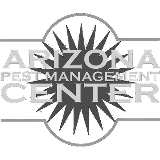Jun 16, 2010
Herbicide Resistance 2010
Arizona is one of only four states in which no cases of herbicide resistance have been confirmed. All of the surrounding states, including the Imperial Valley of CA, have confirmed cases of herbicide resistance, which is a source of growing concern. Weeds inherit characteristics that determine how they will likely respond to herbicides. When a weed species is treated and is not controlled and never has been we say that it is tolerant to that particular herbicide. On the other hand, when a weed species is controlled by a herbicide we say that it is susceptible to that herbicide. It is when weed species change from susceptible to tolerant that we say that they may have developed resistance to that herbicide.
Resistance of Littleseed Canarygrass to some of the ACCase Inhibitor herbicides, including Poast, Select, Fusilade and generics of these, has been confirmed in the Imperial Valley, CA. Poor control of Canarygrass and Rabbitsfootgrass from Poast have been reported in a few fields in the Yuma area in recent years, although resistance has not been confirmed. We hope to evaluate this further next season.
Weed populations may look uniform but in fact, they are very diverse on a genetic level. Resistance to a particular herbicide occurs when there are naturally occurring variants of the weed species that are tolerant. Two principals that are important to understand are 1) the tolerant variants are not caused by the herbicide but occur naturally and 2) individual weeds do not change to become resistant, rather the weed population changes to become resistant over time. What happens is that if the same herbicide is used continuously for a prolonged period of time, the susceptible biotypes will die out while the resistant biotypes will survive and reproduce, passing on their resistance to the next generation.
More information on the current state of herbicide resistance can be found here:http://www.weedscience.org/In.asp
To contact Marco Pena go to:
marcop@ag.arizona.edu







